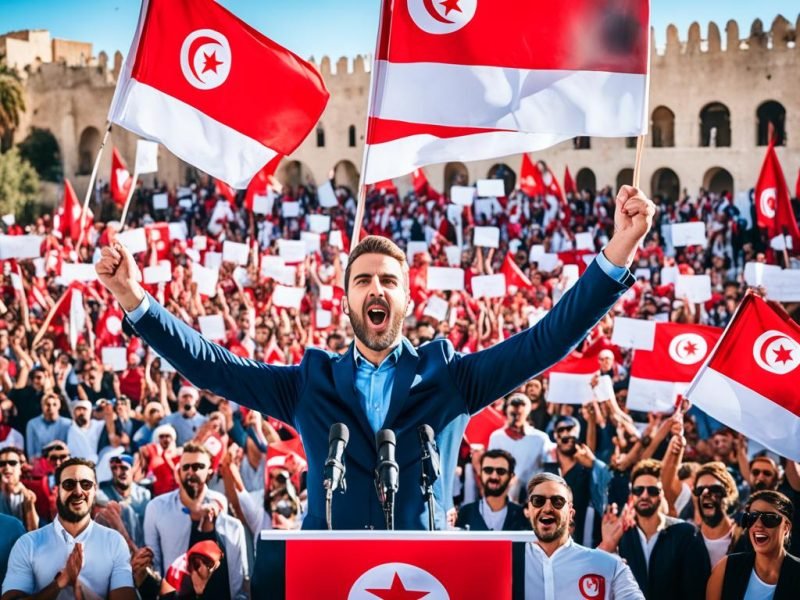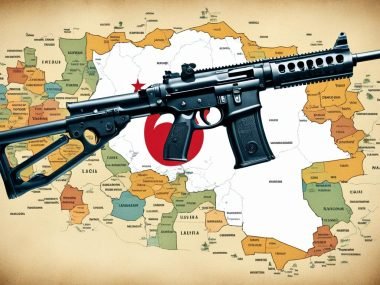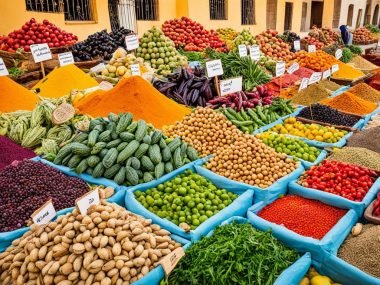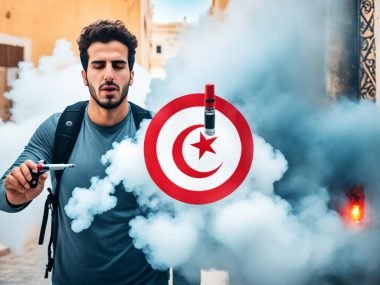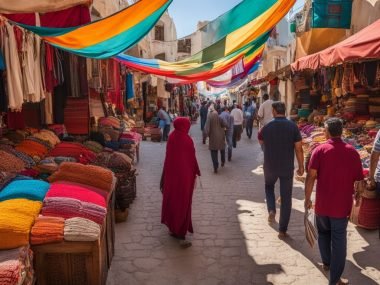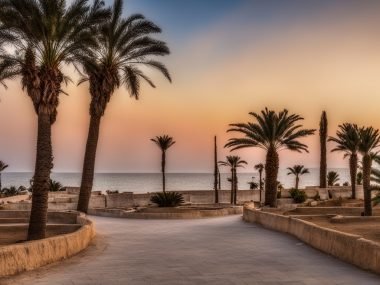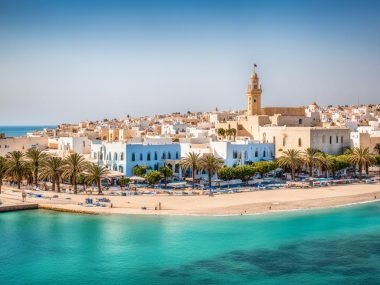Is Tunisia as free in speech as we thought after their revolution? I always stand up for the right to speak freely. But now, I am not sure how strong Tunisia’s commitment to free speech is. They made big steps forward after their revolution. Yet, the president declared emergency powers on July 25, 2021. This has made people worry about their progress.
Now, human rights in Tunisia face a big challenge. When parliament was shut down and one person got all the power, people started to worry more. This brings up big questions. How strong is Tunisia’s democracy now? And what does this mean for people’s right to speak out?
Key Takeaways
- Tunisia’s freedom of expression has been a hallmark achievement since the revolution.
- Concerns have arisen following President’s emergency powers declaration on July 25, 2021.
- The dissolution of parliament has intensified uncertainty around political rights in Tunisia.
- Tunisia’s commitment to human rights is under significant strain.
- The future of free speech in Tunisia is uncertain in the current political climate.
The Current State of Freedom of Expression in Tunisia
Recent events in Tunisia have raised concerns about free speech. The introduction of Decree Law No. 54 of 2022 stands out. It has led to more censorship in Tunisia.
Examining the Tunisia democracy index shows worrying signs. After emergency powers were declared in July 2021, the president gained more control. This shift has hurt Tunisia’s democracy and freedom. It’s harder for people to speak their minds now.
The government is trying to stop peaceful protests and criticism. This move has hurt Tunisia’s standing in global press freedom rankings. The crackdown on demonstrations and discontent shows the risks to civil liberties in Tunisia.
Tunisia’s situation reminds us to balance order with democratic principles. The Tunisia democracy index changing shows the need to protect speech freedom. Watching these changes is key. We must ensure stability efforts don’t suppress essential freedoms.
Impact of Decree Law 54 on Tunisian Free Speech
Decree Law 54 changed Tunisian free speech laws a lot. It makes us wonder about its effects on speech freedom. It also makes us think about human rights in Tunisia. Let’s talk about this law and what it means for political rights there.
Prosecutions Under Decree Law 54
Many lawyers, politicians, journalists, and activists faced legal issues because of Decree Law 54. They got in trouble for sharing their opinions online. This shows Tunisia might not fully support free speech. More people are now worried about human rights in Tunisia because of these cases.
Vague and Broad Terms in the Law
The law uses unclear and broad words. This makes it risky. It gives the government too much power to limit online speech. The law’s broad language can lead to unfair actions. This threatens political rights in Tunisia and makes freedom and control hard to balance.
Enhanced Protection for Public Officials
Decree Law 54 also protects public officials more. This creates unfair advantages. It goes against the ideas of equality and fairness, key to human rights in Tunisia. By protecting officials too much, it might stop necessary criticisms and debates. This can harm democracy in Tunisia.
Does Tunisia Have Freedom Of Speech?
Tunisia is facing big issues with freedom of speech. Government laws and unclear legal wording limit talk about the economy. This talk is key for public discussions.
New laws make censorship in Tunisia more likely. Their vague terms are a real threat to speaking out. These laws affect both personal voices and economic discussions important for growth.
The Tunisia democracy index shows these problems. It suggests efforts to stop free speech. Stopping open talk and criticism is bad for democracy and the economy.
Press freedom in Tunisia is also under pressure. Reporters play a key role in starting informed talks and keeping leaders honest. But now, they face greater risks.
| Legal Aspect | Impact on Free Speech |
|---|---|
| Vague Legislative Phrasing | Increases risk of censorship and hinders open economic discourse |
| Governmental Powers | Restricts public debate and stifles criticism |
| Press Freedom | Journalists face intensified challenges and threats |
Government actions and laws are limiting free speech. This affects democracy and the economy in Tunisia. Now more than ever, we need balance. We must respect freedom but keep order too.
Press Freedom and Censorship in Tunisia
The state of press freedom in Tunisia has gotten worse. This issue shows the tough journey journalists have for freedom of expression. The falling rankings by Reporters Without Borders shine a sad light on the media’s situation.
Reporters Without Borders Rankings
Reporters Without Borders rankings show a clear picture of Tunisia’s media scene. The country has fallen in rankings. This is due to money problems and harsh laws, hurting journalists’ work and trust in media.
Challenges Faced by Journalists
Journalists in Tunisia face many hurdles. These include not getting enough information and facing threats. Financial issues also hit many media outlets hard. This limits their freedom to work well and speak out.
This constant pressure stops free information flow and hurts political rights in Tunisia.
Government Interference and Restrictions
Government interference is a big problem for press freedom. Journalists face both seen and unseen censorship. This scares them from reporting freely.
This issue affects not just the journalists but the whole Tunisia freedom of expression. It changes how news is shared and seen in Tunisia.
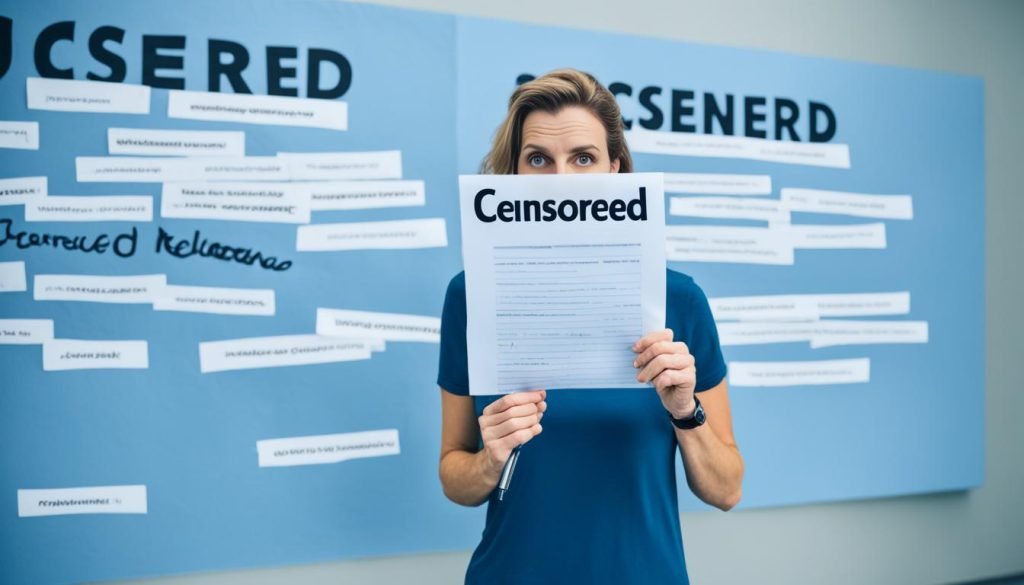
The increase in restrictions and money problems is worrying for Tunisia’s media. Fighting for a free press is key. It helps protect political rights in Tunisia and keep democracy alive.
Political Landscape and Civil Liberties in Tunisia
Tunisia’s politics have changed a lot, especially with President Kais Saied in charge. This has made people worry about democracy and freedoms in Tunisia. The way power is held now raises flags about losing democratic practices and balances.
Meanwhile, changes to the constitution are causing big debates on human rights in Tunisia. The courts are not as free as before. This has hurt personal freedoms and democracy. It’s a step back from the democracy Tunisia wanted.
We need to keep checks and balances strong to protect freedoms in Tunisia. Knowing how these political changes affect democracy helps us see the challenges. It shows us how rights are being impacted.
Let’s compare the state of freedoms and rights in Tunisia now:
| Aspect | Pre-2021 | Post-2021 |
|---|---|---|
| Democracy Index | Higher | Lower |
| Civil Liberties | Strong | Weakened |
| Human Rights | Respected | Challenged |
| Judicial Independence | Secure | Compromised |
Human Rights and Legal Reforms Affecting Free Speech
Tunisia is making changes to its laws. This is very important for people’s rights to speak freely. The new rules in the constitution are making some people worry. They give more power to the president. This can change how decisions are made in Tunisia. It could also make it hard for courts to work without pressure.

Constitutional Changes
Tunisia’s new laws have made many worried about human rights. By giving the president more control, the lawmakers have less power. This could hurt democracy. These changes might also limit what people can say freely. That’s bad for the country’s freedom.
Judicial Independence and Free Speech
A fair court system is key for freedom. It helps protect the right to speak out. But, the recent changes weaken the courts’ freedom. This can influence the outcomes of cases about speaking freely. It’s a big issue for rights in Tunisia.
International Human Rights Obligations
Tunisia has promised to follow global rules for human rights. This includes letting people speak freely. But, the recent changes are worrying others around the world. Taking power away from lawmakers and courts goes against these promises. It’s a sign of bigger problems.
Conclusion
After the Tunisian revolution, Tunisia made great progress in freedom of speech. But now, things are getting worse. President Kais Saied’s new laws are causing worry. They are bad for free speech and human rights in Tunisia. This is a big move away from the democracy Tunisia wanted.
Now, people like journalists and activists are scared to say what they think. The new laws are not clear and make people fear speaking out. This hurts not just political talk, but all public discussion. Groups fighting for human rights are more important than ever. They need to protect everyone’s freedom to speak.
We all hope Tunisia becomes more democratic. Its people’s strong will to fight for their rights is key. The world must watch and push the government to do better. By fighting for the right to speak freely, we can make a better future. This fight is hard, but we can’t give up on free speech.

